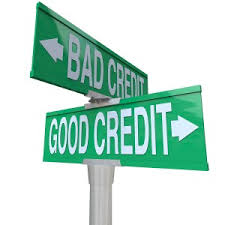How to Get Items Removed From Your Credit Report
Having a good credit score is an important part of most people’s lives. It lets lenders know how trustworthy you are with borrowing money. This includes everything from a small personal loan to a big financial commitment like a home mortgage. Yet, most people in 2020 still have no idea how their credit score works.
Here are some things to keep in mind next time you think about your credit score.

Know What Goes Into Your Credit Report
This is your first line of defense — Knowing what information goes into your credit report can provide you an idea of your financial health and also identify if you’ve been the victim of identity theft.
To find out what’s on your credit report, the three main credit reporting agencies (Equifax, Experian, and TransUnion) allows you to obtain it once a year. Due to the current COVID-19 pandemic, all three credit reporting agencies are now offering free weekly online reports through April 2021; this is your first step.
Next, you have to find out what information what makes up your score and what factors can improve or damage your score. Finally, ask how you can improve your score. Usually, that information is provided to you as a list of risk factors — Always ask for your risk factors!
The Five Categories Your Credit Score is Composed of
- Payment history (35%)
- Debt (30%)
- Credit history length (15%)
- Credit mix (10%)
- New Credit (10%)
If you make payments on time, keep your credit usage below 30%, have a good balance of different kinds of debt (credit cards, mortgages, personal loans, etc.), you are on your way to having a great credit score.
Luckily, having a low credit score does not mean you will not be approved for a loan until it goes back up. Some lenders provide information on the average score applicants need to qualify for a loan. I recommend speaking with your trusted lender so you are clear on the requirements for obtaining a loan with a low score.
Having negative impacts on your credit score can cause trouble in your life. Most negative impacts stay on your report for up to seven years, which can hurt your chances of obtaining new credit during those years.
Negative Impacts on Your Credit Score
Here is a list of factors that can impact your credit score in a negative way
- Late Payments or Non-Payment
- Having a charge-off
- Bankruptcy
- Foreclosure
- Repossessions
- Judgments
- Collections
Removing Negative Items from Your Credit Report
Getting an item removed from your report is not easy and there are usually several steps to take in order to do so.
- Dispute the Information With The Credit Bureau
- Initiate a Dispute Directly With the Reporting Business
- Hire a Professional Credit Repair Service
- Get Credit Counseling
- Pay for Delete
- Write a Goodwill Letter
- Wait It Out
Conclusion
To sum it all up, having a great credit score is necessary to help you meet financial goals much faster. Now, keep in mind that making all the right moves won’t necessarily mean your score will improve overnight. However, checking your credit report regularly is the best defense you have for protecting your credit.
Source: How to Get Items Removed From Your Credit Report by MONEY
